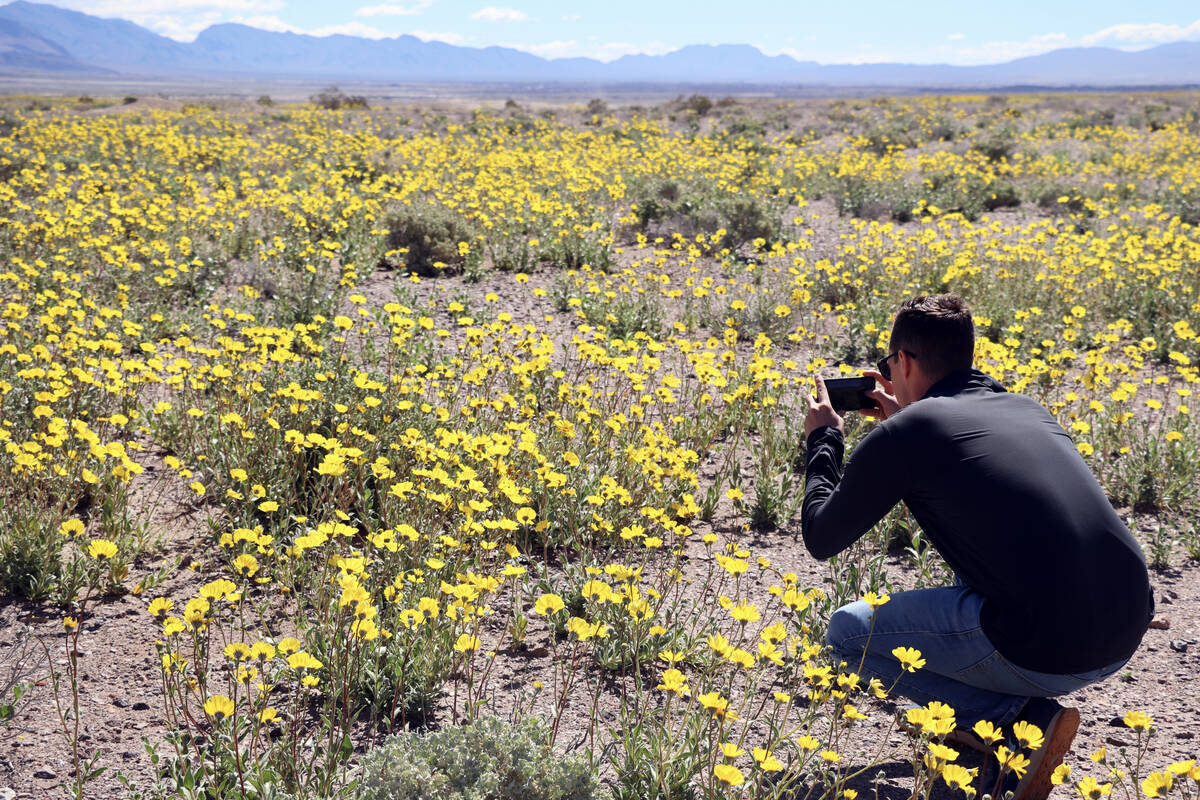West of Las Vegas, wildflowers abound in wildlife refuge — PHOTOS

With the start of spring comes the desire to see swaths of the Mojave Desert transformed, full of lush, colorful and fleeting flowers.
This year, Las Vegans will have the best luck out West in the area surrounding the Amargosa River, a lesser-known water body that straddles the California-Nevada border, flowing from Beatty into California’s Death Valley National Park.
Mason Voehl, executive director of the nonprofit Amargosa Conservancy, said one of the best spots to chase wildflowers this season is Ash Meadows National Wildlife Refuge. Rangers said they can be found in Death Valley, too, particularly near the east entrance on Dantes View Road and in Panamint Valley on the park’s west side.
Rains from California’s atmospheric rivers and Tropical Storm Hilary have prompted a massive bloom of desert gold wildflowers — the most common sight right now in border towns like Tecopa and Shoshone, Voehl said.
“What we get to show for it is fields and fields of stunning wildflowers,” Voehl said, an all-consuming and never-ending row of yellow flowers behind him. “Events like these, I hope, give people a stronger sense of the power of water in this landscape.”
A ‘super’ bloom of sorts
There’s no true litmus test for what scientists consider a “superbloom.” Botanists almost unilaterally declared last year’s bloom in California to be one, but it’s uncertain whether this year qualifies.
“It’s pretty super,” Voehl said. “Super to us, at least.”
California Botanic Garden botanist Naomi Fraga said she doesn’t think current conditions align with a superbloom.
However, the Amargosa Basin is more covered in flowers this season than it was last spring, she said. There’s a lack of diversity right now in what’s flowering, Fraga said, with desert gold wildflowers leaving a yellow footprint across the Mojave.
What’s peculiar about this bloom is that desert gold wildflowers began to flower as early as November. This is a sign of “overwintering,” where plants brave less water and less warmth.
In the future, Fraga said, Nevadans could see fewer wildflowers bloom than ever, especially if there continues to be more rain in the summer than there is in the winter.
Flowers across the Amargosa should stick around for at least two more weeks, she said. But that’s not guaranteed.
“If we get a strong wind event or a heat spell, it could take them out very fast,” Fraga said.
Some of the endemic flowers in Ash Meadows may flower well into August, refuge manager Kevin DesRoberts said. He only expects the flowers to spread over the next few weeks in the area, which is less than a two-hour drive from Las Vegas.
“It’s spectacular to see when the desert is green and flowers are blooming,” he said. “It’s not a common occurrence.”
Contact Alan Halaly at ahalaly@reviewjournal.com. Follow @AlanHalaly on X.